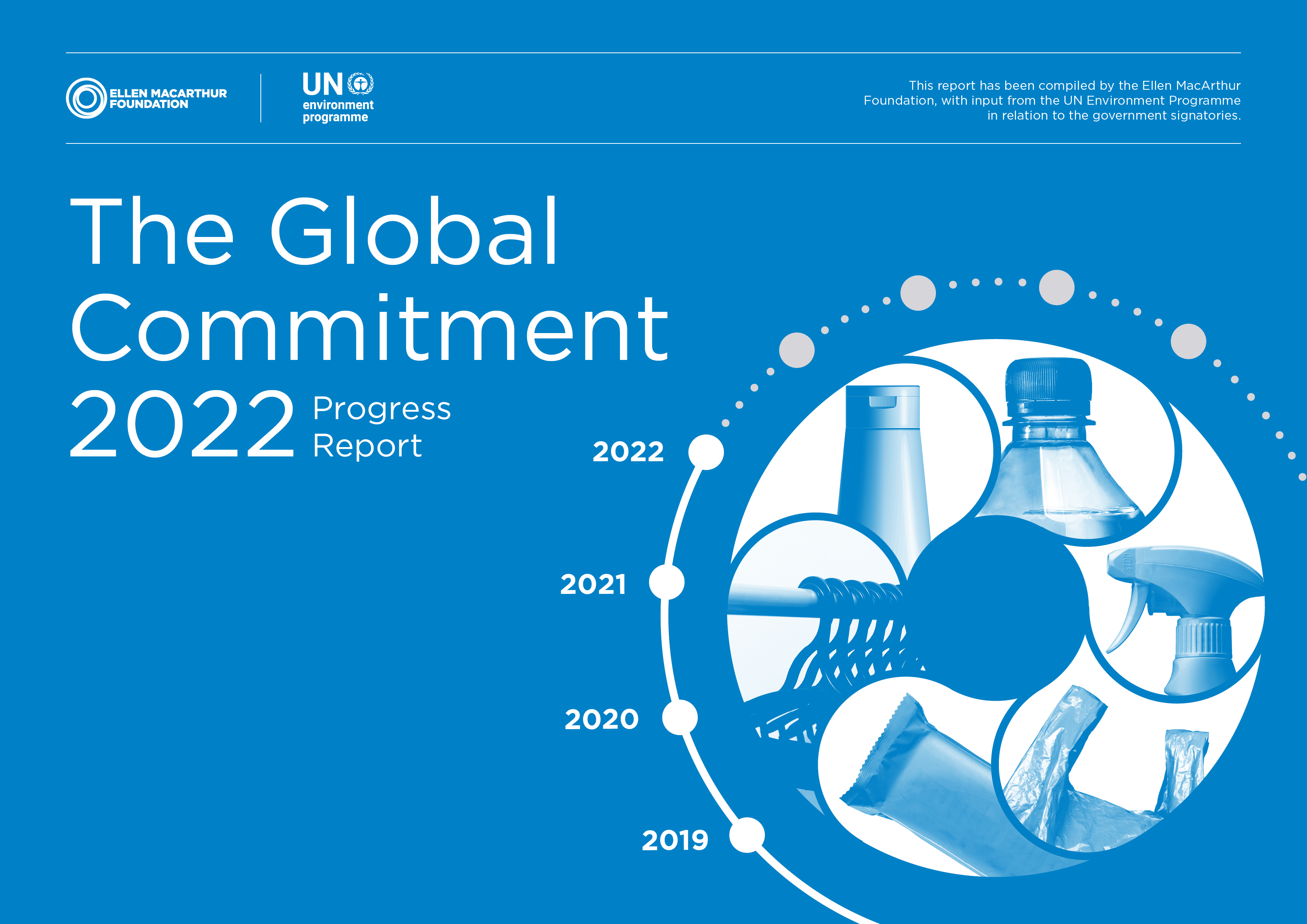Back in 2016 Ellen MacArthur Foundation and World Economic Forum worked to develop the New Plastic Economy[1] as a framework to reduce plastic use. In 2018, and to great fanfare, Ellen MacArthur Foundation promoted the New Plastic Economy, with WRAP promoting its Plastic Pacts ‘enabled by the New Plastics Economy’[2], and companies signed on.
Countries and companies that together represent over 20% of global plastic use committed to plastic use abatement measures with a 2025 deadline.
Signatories agreed to a range of targets:

Signatory companies have been working to meet these targets and each year publish performance data.
But instead of falling, plastic use is rising, so what’s gone wrong?
In our view, this outcome was inevitable because the framework is flawed.
The key issue is that the global commitments have no reductions or even limits on overall plastic use. The only commitment that could feasibly reduce plastic usage is the goal that by 2025 ‘100% of plastic packaging is reusable, recyclable, or compostable’. (Making packaging recyclable or compostable wouldn’t reduce plastic use but making it reusable would.)
By including these three strategies as options, Ellen MacArthur Foundation/WRAP let signatories choose the easiest, regardless of which best lowers plastic use. And you guessed it, the easy one, making plastic ‘recyclable’, doesn’t lower plastic use at all!
Excellent!
Selecting ‘recyclability’ as a key metric has distracted and delayed efforts to address plastic waste from packaging.
This should not be a surprise. We predicted a poor outcome in a 2019 article on LinkedIn, in 2020 published analysis showing how plastic use wasn’t falling and in a separate 2020 report predicted companies wouldn’t meet their targets.
It’s been clear for a while now that signatory companies wouldn’t reduce plastic use, or even meet the global commitments. Ellen MacArthur Foundation now agrees that plastic use continues to rise and that ‘most signatories will almost certainly miss the 2025 target of 100% reusable, recyclable, or compostable plastic packaging’.
[1] https://www3.weforum.org/docs/WEF_The_New_Plastics_Economy.pdf
[2] https://wrap.org.uk/taking-action/plastic-packaging/initiatives/the-uk-plastics-pact
